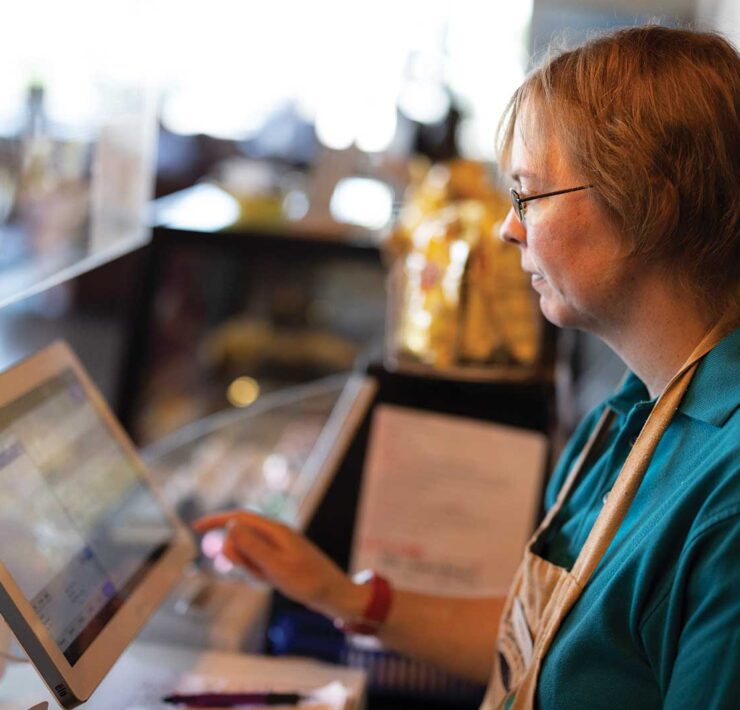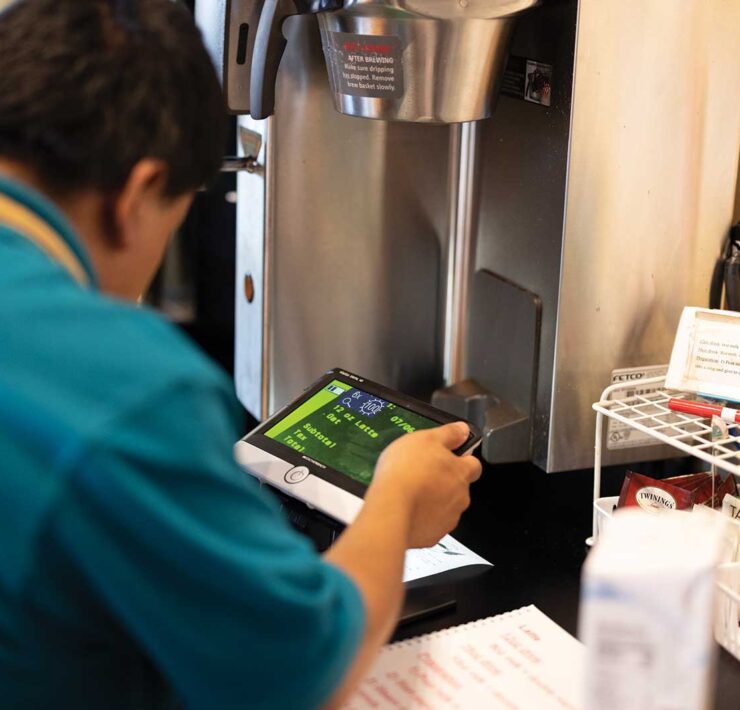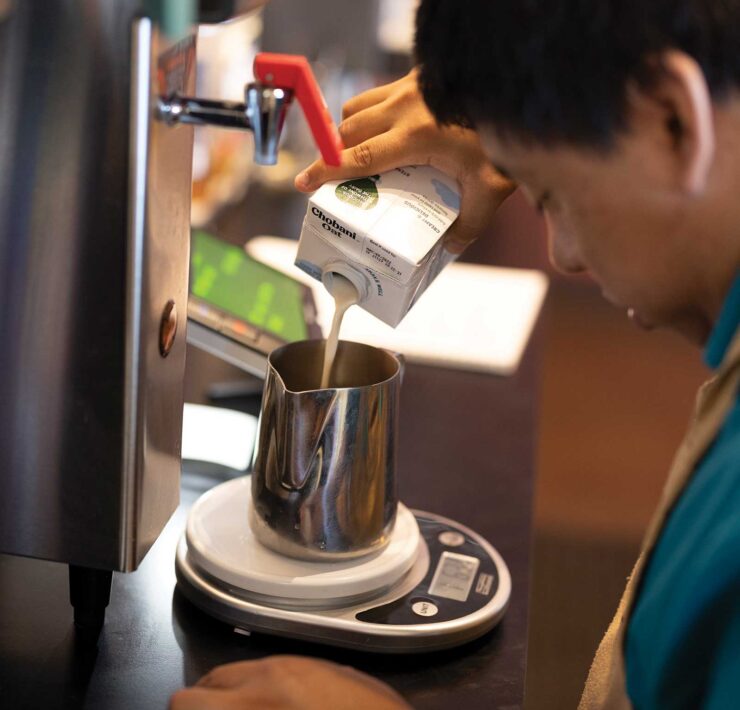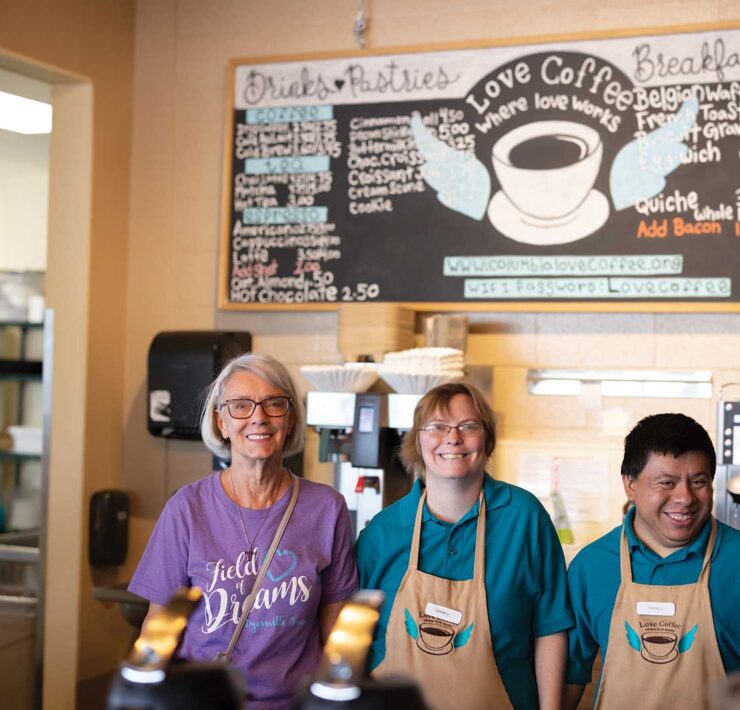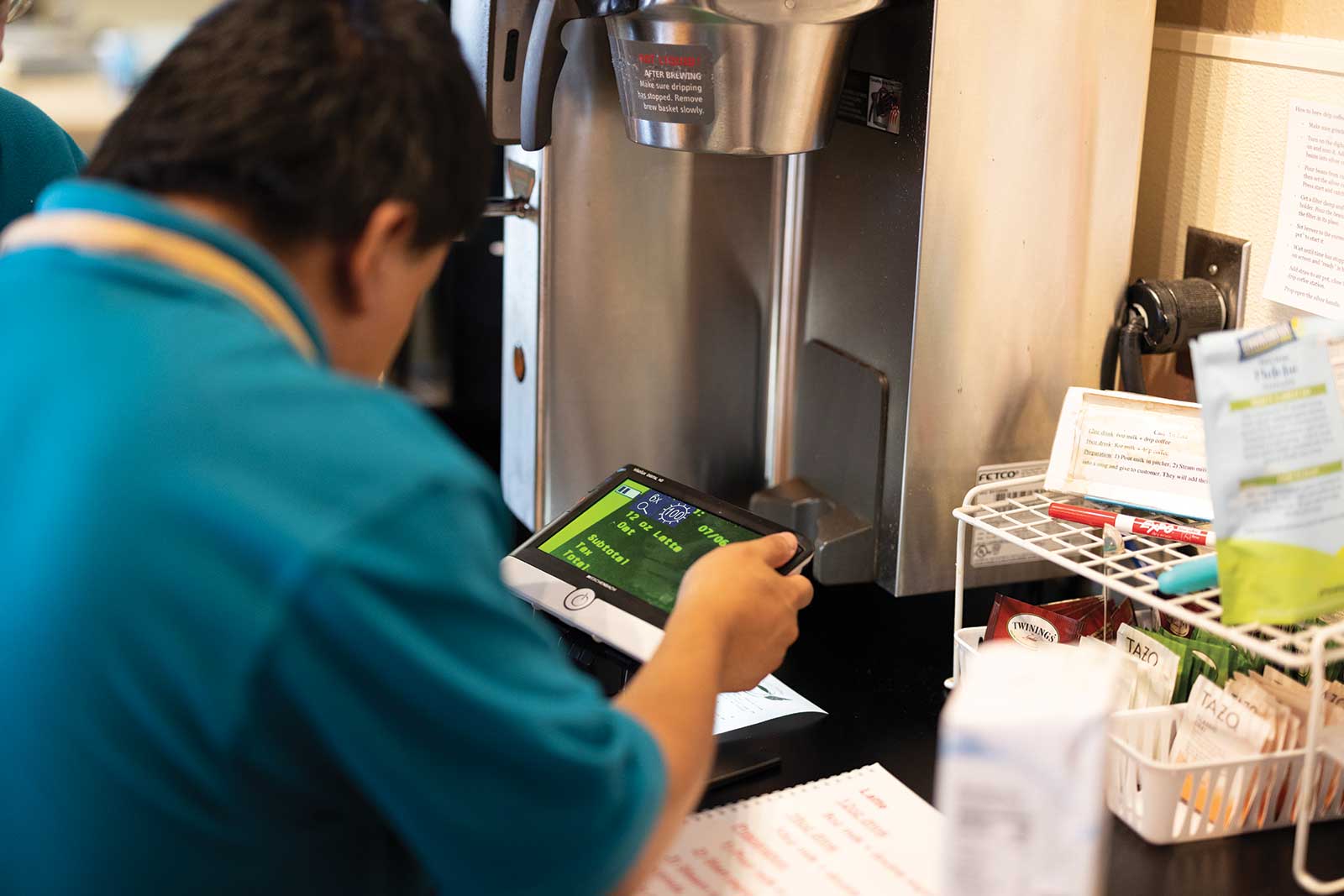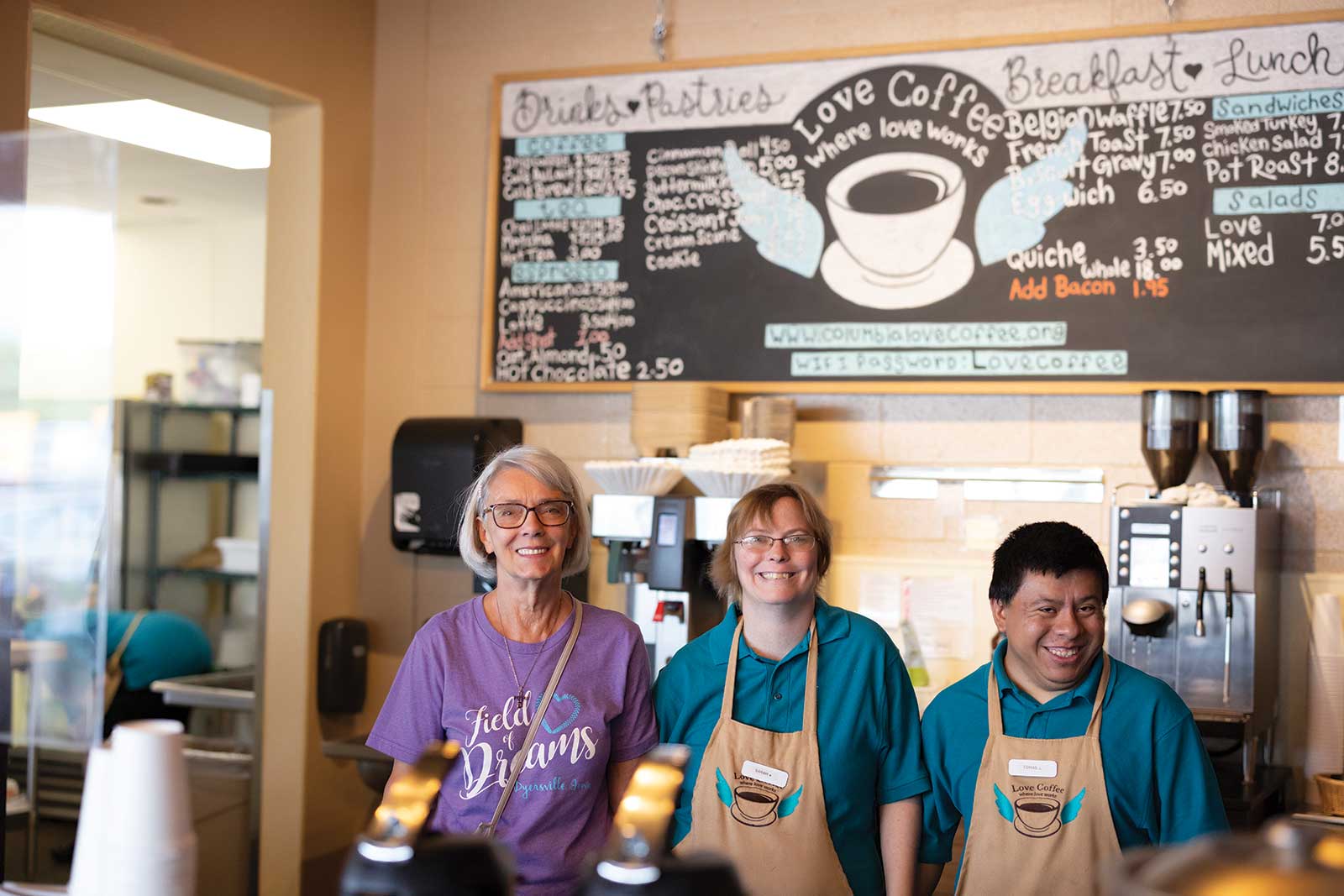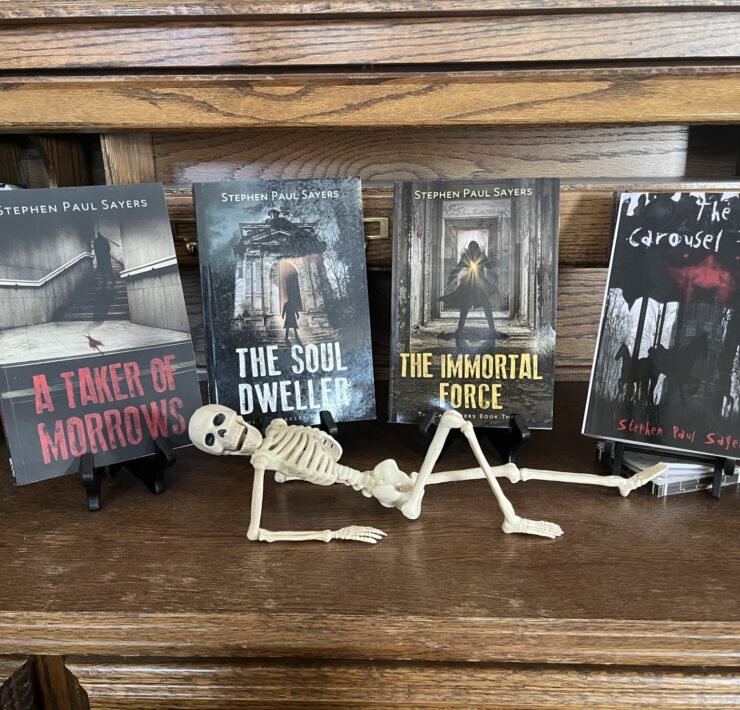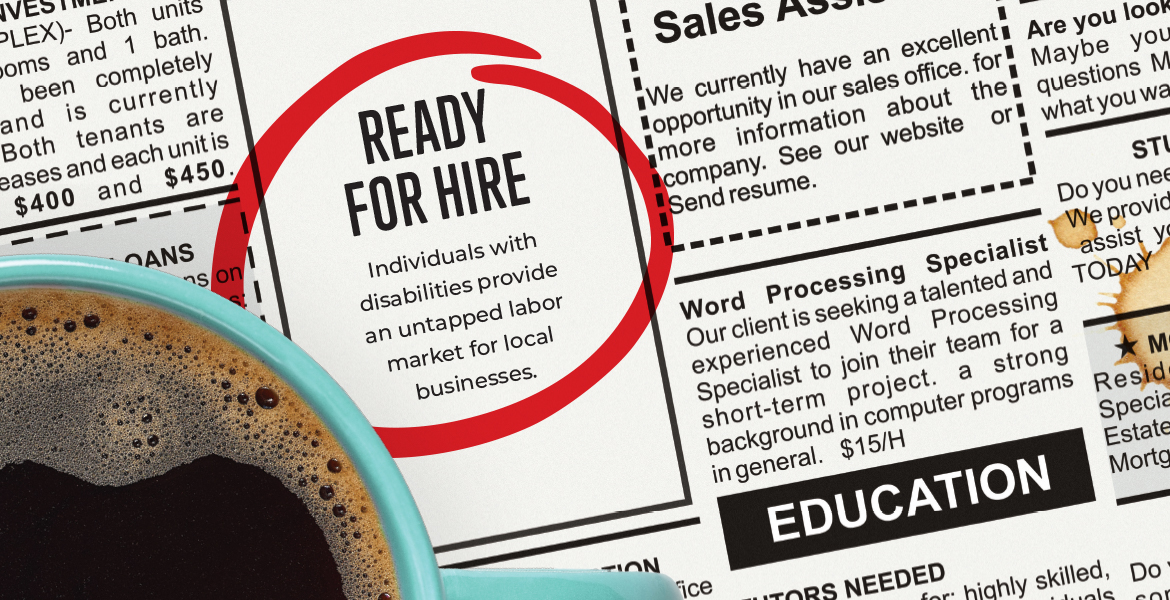



 +5
+5 Individuals with disabilities provide an untapped labor market for local businesses.
As “Help Wanted” signs line storefronts and businesses across the country struggle to fill open positions, employers around Columbia are tapping into an underutilized group of capable, willing, and loyal employees – those with physical, developmental, and intellectual disabilities.
“The labor market is really tight right now, so we are seeing a lot more employers reaching out to us because we have an underemployed population that wants to work,” says Lukin Murphy, director of community employment services at Woodhaven. “Employers are willing to try something new and partner with us, and almost universally, when we get people in there and get them trained, everyone is surprised at how successful they are. We aren’t surprised, but often the employers are.”
Woodhaven, one of the Missouri Division of Vocational Rehabilitation’s Community Rehabilitation Providers, helps individuals with disabilities prepare for, obtain, and be successful in competitive employment.
“Competitive employment is paid at a minimum wage, the same as everyone else, and the employees are integrated with and have regular interactions with other non-disabled coworkers,” Lukin says.
Exploring the Job Market
In the last year of high school, students with disabilities receive an assessment through Vocational Rehabilitation, the state agency tasked with helping those with disabilities overcome barriers to accessing and maintaining employment. After the initial assessment, some people are referred to a college or certification program. Those that are ready for employment are referred to a Community Rehabilitation Provider like Woodhaven or Job Point.
“Sometimes people might not realize they would qualify,” says John Scalise, director of rehabilitation services at Job Point. “You have to have an eligible diagnosis. Learning disabilities are common, as well as everything from a physical or behavioral health diagnosis to an intellectual or developmental disability, whether you are born with it or there was some event that created it. Some of our clients are blind and hearing impaired. If you have autism, you qualify for services.”
When candidates first arrive at a CRP, they work closely with a staff member to create a Discovery and Exploration Plan. In addition to learning more about work history and job goals, this initial phase allows candidates to explore different types of work to find the best fit.
“We go to a minimum of three businesses and try several hours of the job, whether it is bagging groceries or going to FedEx and helping with the packages,” Lukin says. “It is important for the client because a lot of students coming out of high school have ideas of what they think they want to do, but they have never done it. If they still like it, great, if not, that is ok, too. When they try the job, we learn more about what kinds of support and accommodations they are going to need. It really helps both the clients and provider learn about whether it is a good fit, and if it is, what we need to provide to be successful.”
Once a client identifies an area of interest, John says they can receive help building a resume, practice filling out applications, and practice interviewing.
“Some candidates will need more assistance than others,” John says. ‘We have relationships all around town and we can reach out to human resources and say we have a great candidate or follow up on a candidate.”
Lukin says as advisors, they can be as involved as the candidate wants them to be. They can forward potential job opportunities based on the client’s employment plan, or they can go to an interview with a candidate to be a source of support.
“Some of our clients have difficulty with communication or anxiety, so sometimes we facilitate communication or just be a presence, it’s up to the client,” Lukin says.
Meeting the Competitive Standard
When a CRP places a candidate, the primary goal is for the candidate to successfully work 90 days independently. Every candidate requires different levels of support to make that happen.
“If someone needs more assistance, we have supported employment, where they can have a job coach on site for the first two weeks or the first few months,” John says. “They’re the ones who help you remember everything the boss is telling you, so when guidance is given on how to do something, the coach can give feedback, or create checklists based on the client’s disability, or just map out the flow of the day.”
In competitive employment, those receiving the services of a CRP are expected to work at the same level as any other employee. While the expectations are not lower, they can access support and accommodations to maintain that level of performance.
“It’s not that they work half as fast, but they might need extra support to work at the satisfactory level,” Lukin says.
That might mean that an employee who is stocking shelves, but dropping several cans or jars, could need to wear special gloves, an apron, or have a special stool that enables them to complete their job. In a clerical environment, an employee might need visual supports, like a color-coded guide, that can help them sort papers with the expected level of accuracy.
“There might be an easy and simple solution that would allow them to perform at the expected level,” Lukin says. “It’s those things that the employer might miss, but when you get a professional in there, like an occupational therapist, they can usually come up with a solution that would allow the person to do the job just fine with an easy accommodation.”
Although an employer might need to contact the support provider, the CRP takes responsibility for finding the necessary accommodations that allow the client to be successful.
Taking a Risk Has Benefits
“There is a lot of data that neurodiverse employees are more dependable and reliable, keep jobs longer, have fewer call ins, are late less often, are rule following, and have less turnover,” Lukin says. “While there might be the occasional hiccup, the benefits are huge.”
Employers hiring people with disabilities are also eligible to receive tax incentives, and John says they can help employers navigate that process.
“It is the government’s way of trying to give people with disabilities a little extra chance to get their foot in the door by giving businesses a little less risk to take that chance,” John says.
Although CRPs always encourage employers to work out any issues with the employee first, the CRP remains a resource to both the employee and the employer for the entire length of employment. Employers are welcome and encouraged to reach out at any point, for any reason.
“We are a good friend for them to have,” John says. “We can talk to candidates about things HR can never get into. We are someone they can call no matter what. We are in regular communication, so if there are any problems, they can reach out to us to help with barriers.”
Hot Coffee Served with a Side of Pride
In March 2020, three weeks before the COVID-19 pandemic brought life to a grinding halt, Love Coffee sprang to life, fulfilling a mission to provide a place where those with disabilities and barriers to employment can work. Though they were forced to close for six weeks, they’ve been slowly but steadily “limping along ever since,” and Cafe Manager Karen Morgan says they are very thankful.
“Most of the time, it isn’t about the money for our employees, it is about the community, getting up and working everyday like people in their family, getting a paycheck with their name on it, and becoming individuals,” Karen says. “Community is huge. Community is as important as the job skills they’re learning and the money they get.”
Love Coffee is a nonprofit organization that works with agencies like Woodhaven and Job Point, but also takes resumes from disabled individuals who aren’t working with an agency. While it isn’t a training center, Karen says the hope is that Love Coffee’s employees will eventually have the confidence to pursue new opportunities, and with them, higher pay and more hours. With 30 years of experience as a special education teacher under her belt, Karen says she knows that her employees are capable of much more than they think.
“So many of them have low self-esteem,” Karen says. “They have been told all their lives that they have a disability and the expectations have been very low. Sometimes I shoot high and have to lower my expectations a little bit, but it’s better than shooting too low.”
When a barista position opened at the cafe, a visually impaired employee who had been washing dishes seemed like a good candidate for the position. Karen says she reached out to a visually impaired foundation to help with accommodations. Today, that employee works as one of the cafe’s baristas.
“There was no guarantee that it would work, but I wanted to at least give him the opportunity to try it,” Karen says. “People with physical or intellectual disabilities are sold so short because people think they can’t do very much, and that is not always true.”
Karen says she understands that employers who haven’t been around people with disabilities might be intimidated by the idea of employing someone with a disability, and they may even view it as a liability. But she wants employers to know that with supports from CRPs like Woodhaven and Job Point, hiring an employee with disabilities is no more of a risk than hiring anyone else.
“They will find out that they will be the absolute best employees they will ever have,” Karen says. “They always show up for work, they will come in early, do anything they need to do. They want to make people happy and be successful. They get attitudes like the rest of us, they’re not perfect. But they are the most faithful, dedicated employees anyone will ever have.”





